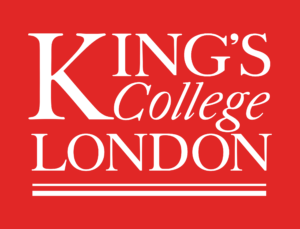Case study: King’s College London
State of Open: The UK in 2024
Phase Two “The Open Manifesto”


Maxwell Fitton
Honorary Researcher, Bioengineering Department
Maxwell started his career as a nurse in A&E but was set on a path towards bioengineering and programming after meeting a physics professor and ultimately shifted to completing a physics degree and postgrad dip in physics and engineering in medicine. This resulted in working in AI and open source software. He is now working with King’s College London on a project enabling advancements in the field of surgical data science. Maxwell explains that while there are many medical devices in the NHS today that record data within hospitals, these devices do not talk to each other, and are not interoperable. While this is adequate for the everyday running of the hospital, and taking data from each device, it means that a lot of this data is ultimately inaccessible and limits the ability to analyse the patient data from a number of devices as a whole.
Through the utilisation of the Rust software coding language, Maxwell and his colleagues are attempting to connect all of these medical devices, forming something akin to a medical internet of devices. The hope is that this will enable the forming of huge data sets, from the devices and allow medical professionals more advanced insights into what is really going on with hospital patients.
Impact
The use of this technology has the potential to bring together patient data to enable better diagnosis and improve patient outcomes, but could also free up medical professionals’ time. By providing the aggregated patient data from across the equipment it will reduce the effort needed to assess the data with a time saving consequence enabling medical expertise to be used more effectively. It can also reduce the chance of errors thereby improving patient diagnosis and treatment. Importantly, Maxwell suggests that such technology could help lessen the pressure on medical staff, who are expected to keep on top of documenting medical data while dealing with high stakes situations which may be life threatening. Maxwell believes that the use of this interoperable data may have a huge impact – like saving lives, enabling more comprehensive research, fostering future innovation in engineering, and opening competition in the field to foster a competitive market.
By lessening the pressure, he also sees that the technology will not only remove pressure in workload and enable better diagnosis but potentially lessen feelings of demoralisation amongst staff and keep their efforts focused on the practical care of patients.
In the spirit of openness, Maxwell hopes that this tool can be utilised by others but also worries there is a skills gap in healthcare. He acknowledges that it is his very specific experiences to date and his working with particular people that have allowed him to build up the skill set that is so important to enable his work. These skills are not easily accessible to others. He therefore stresses the importance of documenting skills, forming a knowledge base that is shared and open to enable future innovation and prevent a decline in skills and subsequently technology.
First published by OpenUK in 2024 as part of State of Open: The UK in 2024 Phase Two “The Open Manifesto”
© OpenUK 2024 ![]()
